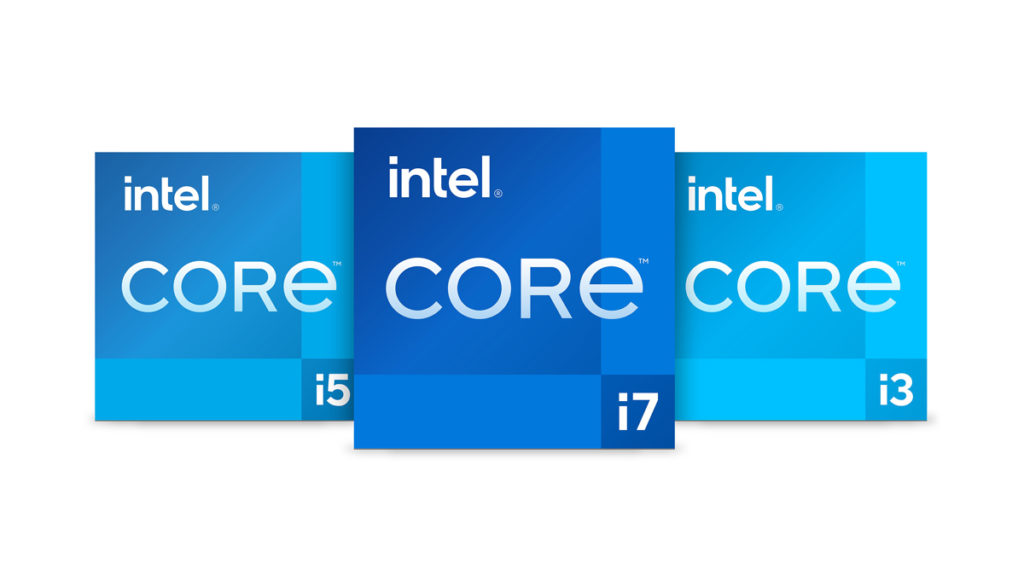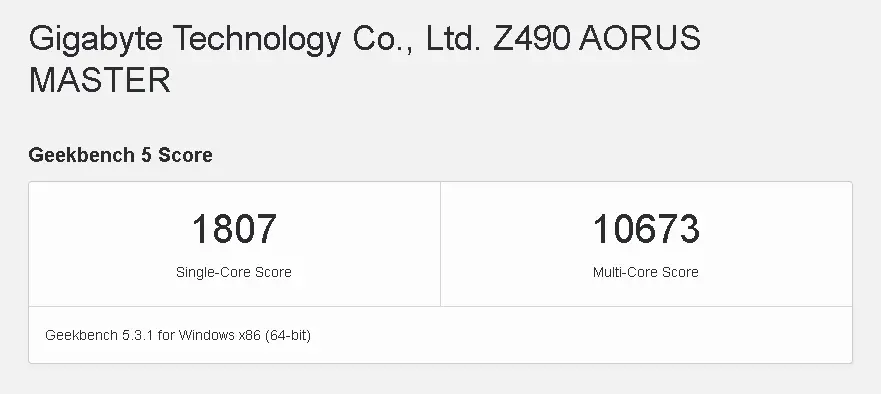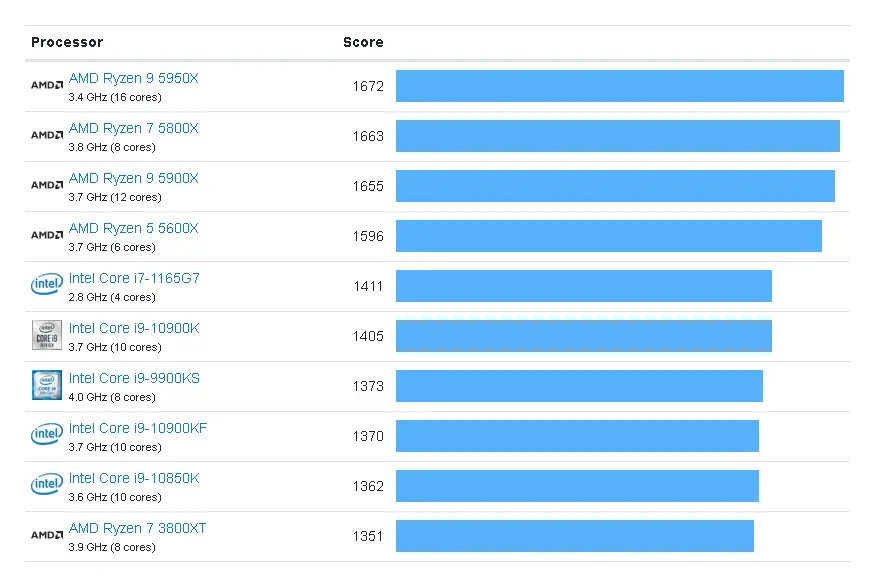
Leakbench has discovered Geekbench scores for one of Intel’s upcoming Rocket Lake-S processors, the Core i7-11700K. The CPU managed to score 1,807 in the single-core test, which is actually 7.8 percent faster than the AMD Ryzen 9 5950X (1,672) based on Geekbench’s own averages. Intel’s chip gets blown away on multi-core performance (10,673 vs. 16,515), however, as the Ryzen CPU features double the amount of cores and threads.
The Intel Core i7-11700K is an 8C/16T processor that reportedly features a 3.6 GHz base clock, 5 GHz single-core boost clock, and 4.6 GHz all-core boost clock.The chip has also been listed with 16 MB of L3 Cache, a TDP of 125 watts, and an Xe-based iGPU with 32 Execution Units (256 cores).
Intel’s 11th Gen Core Rocket Lake-S processors support the same socket as Comet Lake-S (LGA 1200), which means that they are compatible with current 400 Series motherboards. Note that the Geekbench test was performed on a GIGABYTE Z490 AORUS MASTER.


Geekbench 5 CPU
— Leakbench (@leakbench) December 28, 2020
11th Gen Intel Core i7-11700K
GenuineIntel Family 6 Model 167 Stepping 1https://t.co/2zTdQx7y9e
